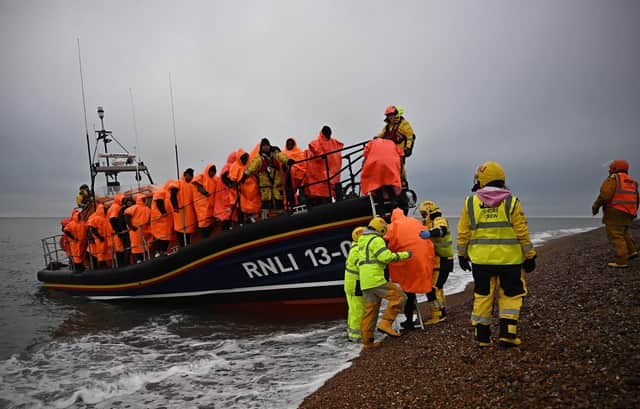Rishi Sunak's crackdown on 'illegal' migrants is based on a myth about the small boats crossing the English Channel – Scotsman comment


The 1951 Refugee Convention also makes clear people should not be punished for breaking immigration rules to seek safety in another country. And, of course, the UK is a signatory to the convention, drawn up at a time when this country was still recovering from the Second World War.
Yet yesterday Rishi Sunak announced he would introduce legislation “to ensure the only people who come here come through safe and legal routes”. He stressed: “If you enter the UK illegally you should not be able to remain here.” So it would appear the Prime Minister plans to double down on the Nationality and Borders Act, which introduced a potential four-year prison sentence for those entering the country without a visa or special permission.
Advertisement
Hide AdAdvertisement
Hide AdAll this is in response to a situation in which thousands of people have been crossing the English Channel in small boats. However the political theology around what is happening – that this is an illegal “invasion” – is rather different to the reality.
According to the UK Government, just eight per cent of “small boat arrivals” processed since 2018 have had their asylum applications refused; 53 per cent were granted refugee status or similar, while the cases of 38 per cent were not considered because they had gone through a safe third country – even though there is no requirement for asylum seekers to make an application in the first such place they arrive in.
Amnesty International says that, while some people already recognised as refugees and some relatives of refugees in the UK can travel here safely, “there are no such routes available to people seeking asylum”.
The best way to stop economic migrants arriving illegally, while living up to our international commitments, would be for the UK to allow the people currently crossing in boats to make asylum claims in France. That would create a legal route for people to come, so anyone crossing in a small boat could be swiftly deported. It would also save lives.
In 1951, the UK recognised its duties to those fleeing persecution and war. We would do well to remember the wisdom and humanity of our forebears.
Comments
Want to join the conversation? Please or to comment on this article.